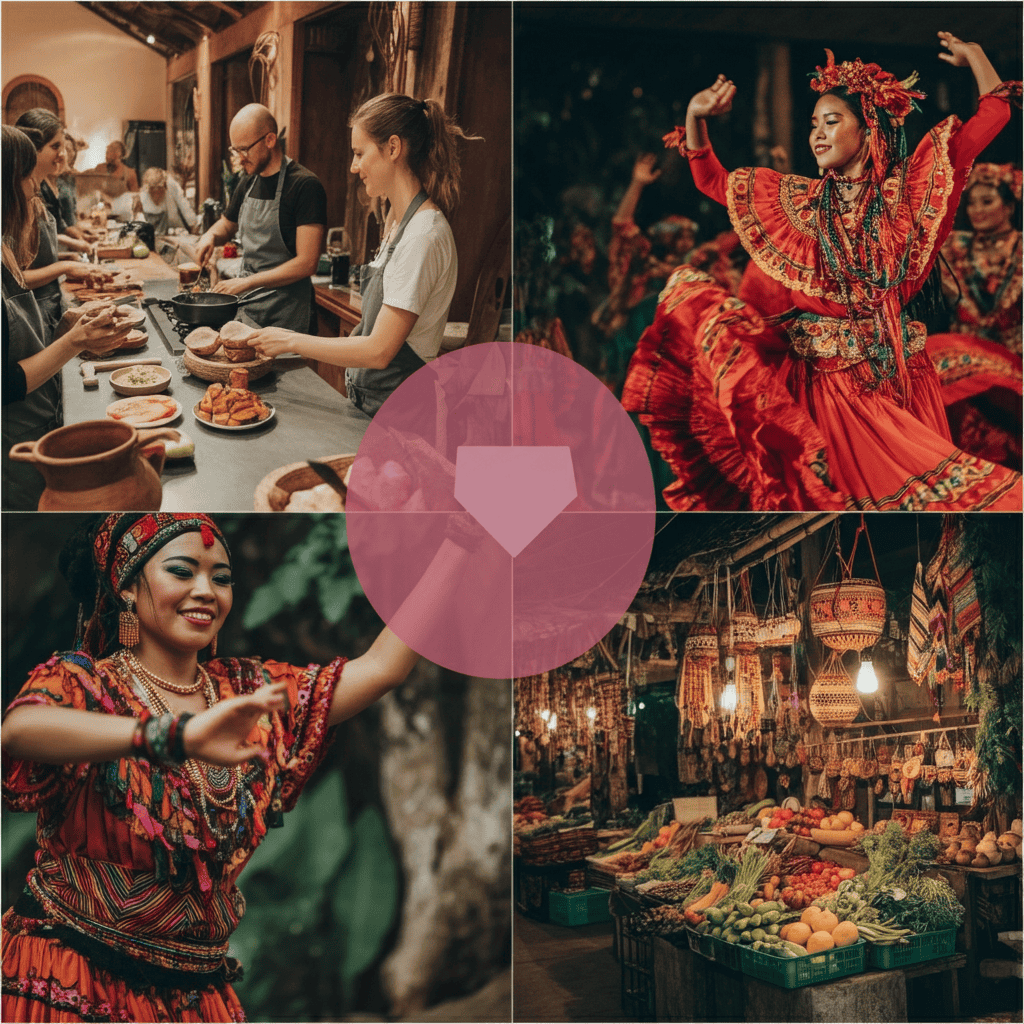Travel is often associated with ticking off famous landmarks and snapping photos for social media. While sightseeing has its charm, true transformation happens when you step off the beaten path and immerse yourself in the local culture. Cultural immersion travel invites you to become an active participant rather than a passive observer, forging genuine connections with communities and uncovering authentic stories that rarely make it into guidebooks.
In this guide, we’ll dive into the philosophy behind immersive travel, show you how to prepare for a culturally rich journey, and highlight some of the most engaging destinations around the globe. Along the way, we’ll share practical tips for respectful engagement, language basics, and safety considerations to ensure your experience benefits both you and the communities you visit.
Whether you’re a seasoned explorer looking to deepen your travels or a first-time adventurer eager for meaningful encounters, this comprehensive guide will equip you to travel with intention, curiosity, and respect. Get ready to go beyond sightseeing and create memories that will last a lifetime.
Why Cultural Immersion Matters
Tourism can be a double-edged sword: it brings economic benefits but also risks superficial experiences and cultural commodification. Cultural immersion aims to balance these by fostering mutual understanding and sustainable practices. When you engage authentically, you support local businesses, preserve traditions, and deepen your own perspective on the world.
Immersive experiences enrich your travels in several ways:
- Deeper Connections: Sharing meals, customs, and daily routines with local hosts creates lasting friendships and personal growth.
- Authentic Insights: You gain a firsthand view of traditions, beliefs, and challenges that shape the community’s identity.
- Positive Impact: By choosing responsible homestays, community-led tours, and local artisans, you help sustain cultural heritage and local economies.
Ultimately, cultural immersion transforms your role from tourist to traveler, encouraging open-mindedness and empathy that extend far beyond your journey.
How to Prepare for Immersive Travel
Preparation is key to a successful cultural immersion trip. Start by researching your destination’s history, social norms, and common etiquette. Read local news, watch documentaries, and follow community-run blogs or social media accounts for up-to-date insights.
Next, consider practical arrangements:
- Accommodations: Opt for homestays, guesthouses, or community lodges that directly benefit local families rather than large multinational hotels.
- Language Preparation: Learn basic greetings, polite phrases, and key vocabulary. Even a few words in the local tongue can break barriers and earn smiles.
- Packing: Bring appropriate clothing for religious or cultural sites, small gifts for hosts (such as school supplies or local handicrafts from your hometown), and any specialized gear for community activities (e.g., dance or cooking classes).
- Vaccinations and Visas: Check official travel advisories and healthcare requirements well in advance.
By taking these steps, you demonstrate respect and set the stage for a rewarding cultural exchange.
Top Destinations for Cultural Immersion

While cultural immersion can happen anywhere, some destinations have built strong frameworks for responsible engagement and community-based tourism. Here are a few standouts:
- Ubud, Bali, Indonesia: Known for its art workshops, temple ceremonies, and rice terrace homestays, Ubud offers a deep dive into Balinese Hindu culture and traditional crafts.
- Chiang Rai, Thailand: Beyond the famous White Temple, you can volunteer with hill tribe cooperatives, learn Lanna cooking, and stay in family-run teakwood homes.
- Cusco, Peru: The historic capital of the Inca Empire provides opportunities to stay with Quechua families, participate in weaving workshops, and trek the Sacred Valley with local guides.
- Marrakech, Morocco: Immerse yourself in riad living, haggle in the souks with a market-savvy local, and learn traditional pottery or tile-making.
- Saranda, Albania: An up-and-coming gem on the Ionian coast, offering olive harvest experiences, Albanian folk music nights, and welcoming guesthouses in hillside villages.
- Lamu Island, Kenya: Step back in time in a Swahili town where donkey carts outnumber cars. Join dhow-building workshops and Swahili poetry evenings.
Each of these destinations emphasizes community involvement, ensuring that your travel dollars contribute directly to preserving local traditions and livelihoods.
Tips for Respectful Engagement
Engaging respectfully is crucial. Keep these guidelines in mind to avoid unintentional offenses and build genuine rapport:
- Observe First: Watch how locals behave in social settings before jumping in. This helps you mirror appropriate gestures, dress codes, and conversational tone.
- Ask Permission: Always seek consent before taking photos of people or private ceremonies. A simple “May I take your picture?” in the local language goes a long way.
- Dress Modestly: In many cultures, covering shoulders or knees is a sign of respect—especially at religious sites.
- Be Mindful of Gift-Giving: Avoid giving money directly; small practical gifts or souvenirs from your home country can feel more personal and less transactional.
- Listen Actively: Let locals share their stories in their own way and time. Ask open-ended questions and resist interrupting with your assumptions.
By showing empathy and cultural sensitivity, you’ll foster trust and open doors to experiences that few travelers get to enjoy.
Making the Most of Local Cuisine
Food is the cornerstone of cultural identity, and sampling local dishes is an essential part of immersion travel. Beyond street stalls and restaurants, look for cooking classes hosted by families or community centers.
Consider these approaches:
- Home-Cooked Meals: Join a family for Sunday lunch to taste heirloom recipes and learn table customs.
- Market Tours: Shop alongside a local chef or home cook to understand ingredients, spices, and seasonal produce.
- Food Festivals: Time your visit to coincide with harvest celebrations, street food fairs, or religious feasts — the perfect highlights for anyone interested in festival travel and authentic culinary experiences.
These encounters not only tantalize your taste buds but also support small-scale farmers, vendors, and artisans in the region.
Language Tips for Deeper Connections
Even basic language skills can greatly enhance your immersion experience. Learning common greetings, thank-you phrases, and polite expressions demonstrates respect and curiosity.
Try these strategies:
- Language Apps: Use flashcard-based apps to memorize key words before departure.
- Phrasebook Exchange: Offer to teach someone a phrase in your language in exchange for theirs.
- Local Tutors: Take short lessons from a neighborhood teacher or through a community center.
Even if you never achieve fluency, your willingness to try will win hearts and spark deeper conversations beyond scripted tourism encounters.
Safety and Comfort Considerations
Immersive travel often involves staying in rural or less-developed areas. While these experiences can be profoundly rewarding, prioritize your safety and well-being:
- Health Precautions: Research local health risks, carry a basic first-aid kit, and bring any essential prescription medications.
- Travel Insurance: Ensure your policy covers community-based stays, volunteer activities, and remote locations.
- Local Guidance: Follow the advice of hosts regarding safe areas, transport options, and cultural do’s and don’ts.
- Flexibility: Accept that schedules in immersive travel can be fluid. Embrace spontaneity, but always share your itinerary with family or friends.
By combining adventurous spirit with prudent planning, you can navigate unexpected challenges and focus on making genuine cultural connections.
Conclusion
Cultural immersion travel transforms ordinary trips into life-changing experiences. By prioritizing authentic engagement, respectful practices, and community benefit, you create a journey that resonates long after you return home. Use this guide to plan a thoughtful adventure, connect with local traditions, and witness the world through new eyes.
Are you ready to go beyond sightseeing? Embrace cultural immersion on your next trip, and you’ll discover that the truest souvenirs are the friendships you forge and the stories you collect along the way.
Learn more about: Travel Photography: Master the Art of Capturing Unforgettable Adventures














